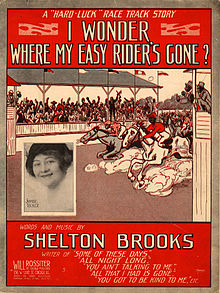
William Christopher Handy was an American composer and musician who referred to himself as the Father of the Blues. He was one of the most influential songwriters in the United States. One of many musicians who played the distinctively American blues music, Handy did not create the blues genre but was one of the first to publish music in the blues form, thereby taking the blues from a regional music style with a limited audience to a new level of popularity.

Moorhead is a city in Sunflower County, Mississippi, United States. As of the 2010 census, the city population was 2,405. This dropped in 2022 and the population recorded was 1,512.

Mary Jane "Mae" West was an American actress, singer, comedian, screenwriter, and playwright whose career spanned over seven decades. Considered a sex symbol, she was known for her breezy sexual independence and her lighthearted bawdy double entendres, often delivered in a husky contralto voice. She was active in vaudeville and on stage in New York City before moving to Los Angeles to begin a career in the film industry.

Gustavus Cannon was an American blues musician who helped to popularize jug bands in the 1920s and 1930s. There is uncertainty about his birth year; his tombstone gives the date as 1874.

Willie Mae "Big Mama" Thornton, was an American singer and songwriter of blues and R&B.
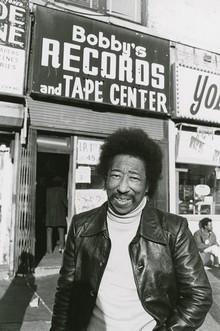
Morgan Clyde "Bobby" Robinson was an American independent record producer and songwriter in New York City, most active from the 1950s through the mid-1980s.
Little is known about the exact origin of the music now known as the blues. No specific year can be cited as its origin, largely because the style evolved over a long period but blues is inarguably a Black American art form as it is noted "it is impossible to say exactly how old blues is - certainly no older than the presence of Negroes in the United States. It is native American Music, the product of the Black in this Country or to put it more exactly the way I have come to think about it, blues could not exist if African Captives had not become American Captives". Ethnomusicologist Gerhard Kubik traces the roots of many of the elements that were to develop into the blues back to the African continent, the "cradle of the blues". One important early mention of something closely resembling the blues comes from 1901, when an archaeologist in Mississippi described the songs of black workers which had lyrical themes and technical elements in common with the blues.

Hudson Whittaker, known as Tampa Red, was an American Chicago blues musician.
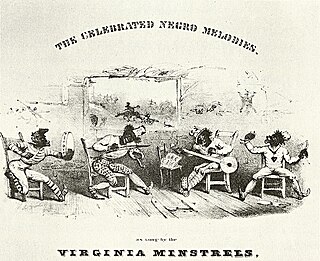
Hokum is a particular song type of American blues music—a song which uses extended analogies or euphemistic terms to make humorous, sexual innuendos. This trope goes back to early dirty blues recordings, enjoyed huge commercial success in the 1920s and 1930s, and is used from time to time in modern American blues and blues rock.

Julien R. Leparoux is a French Eclipse Award winning jockey currently racing in the United States. He has won seven Breeders' Cup races, including the 2015 Breeders' Cup Mile with Champion Turf Mare Tepin and the 2016 Breeders' Cup Juvenile with Classic Empire.
Dirty blues is a form of blues music that deals with socially taboo and obscene subjects, often referring to sexual acts and drug use. Because of the sometimes graphic subject matter, such music was often banned from radio and available only on jukeboxes. The style was most popular in the years before World War II, although it experienced a revival in the early 1950s.
"See See Rider", also known as "C.C. Rider", "See See Rider Blues" or "Easy Rider", is a popular American 12-bar blues song that became a standard in several genres. Gertrude "Ma" Rainey was the first to record it on October 16, 1924, at Paramount Records in New York. The song uses mostly traditional blues lyrics to tell the story of an unfaithful lover, commonly called an "easy rider": "See see rider, see what you have done", making a play on the word "see" and the sound of "easy".

Louis Armstrong Plays W. C. Handy is a 1954 studio release by Louis Armstrong and His All Stars, described by Allmusic as "Louis Armstrong's finest record of the 1950s" and "essential music for all serious jazz collections". Columbia CD released the album on CD in 1986 in a much altered form, with alternative versions in place of many of the original songs, but restored the original with its 1997 re-issue, which also included additional tracks: a brief interview by the producer, George Avakian, with W. C. Handy; a joke told by Louis Armstrong; and several rehearsal versions of the songs.
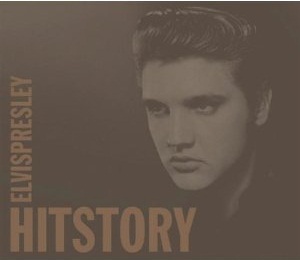
Hitstory is compilation album by American singer and musician Elvis Presley, which includes the two previous compilation album ELV1S and 2nd to None, in addition to a bonus disc, entitled The Story Continues. "My Way" in the European edition is an alternative 'live' 1977 version to the single. On March 8, 2018, the box set was certified Platinum by the RIAA for sales in excess of 1,000,000 units.
The History of Rock and Roll is a radio documentary on rock and roll music, originally syndicated in 1969, and again in 1978 and 1981. It is currently distributed as both a 2+1⁄2-minute short feature on internet networks, and a two-hour weekly series hosted by Wink Martindale, distributed to radio stations nationwide. This list below reflects the contents of the more widely heard 1978 version of The History of Rock & Roll.

The 2009 Grand National was the 162nd running of the Grand National horse race that took place at Aintree Racecourse near Liverpool, England, on 4 April 2009.
The Yazoo-Delta Railroad was a branch line that opened in August 1897 between Moorhead and Ruleville, Mississippi. It was extended to Tutwiler, Mississippi, and Lake Dawson and was acquired by the Yazoo and Mississippi Railroad by 1903.
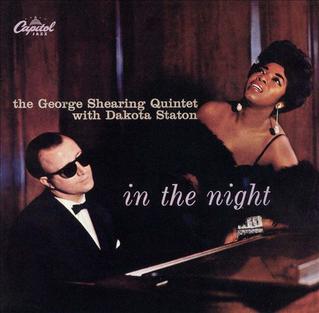
In the Night is a 1958 album by the jazz pianist George Shearing and the singer Dakota Staton. A quintet accompanies the pair. Staton sings on six tracks; the rest are instrumentals.
